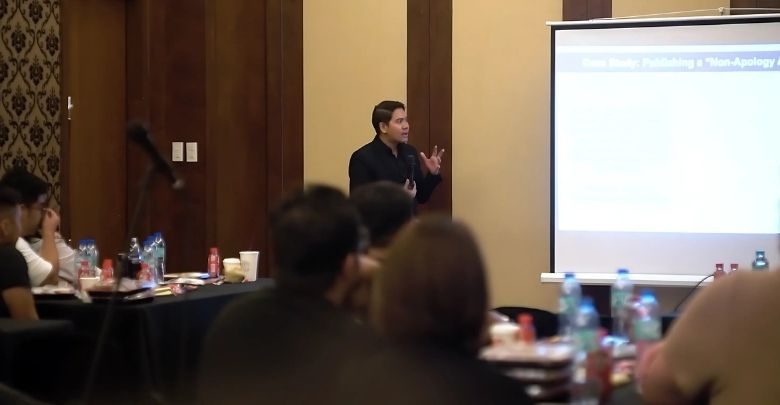Taking part in international conferences is an excellent way to network, share knowledge, and increase your professional capabilities. These events bring together experts from diverse fields, creating an environment ripe for collaboration and learning. However, the costs associated with participating can be significant, leading many to wonder how to get sponsorship for attending international conferences.
To secure sponsorship, start by identifying potential sponsors that align with your field of study or work. Prepare a strong proposal that clearly outlines the value of your attendance, emphasizing the mutual benefits. It’s essential to understand their objectives and tailor your approach to match their interests, as this will greatly enhance your chances of success.
Would you like to learn how to handle the sponsorship process effectively? This article will guide you through the essential steps and strategies needed to obtain sponsorship for attending international conferences, ensuring you have all the necessary information to succeed.
Sponsorship for Attending International Conferences: Why Does It Important?
The sponsorship of international conferences allows professionals and students to access valuable networking opportunities and global knowledge. These events bring together experts from various fields to share insights, present research, and discuss emerging trends. However, attending these conferences often comes with significant costs, including registration fees, travel, and accommodation.

Sponsorship helps cover these expenses, making it more accessible for individuals who might not otherwise be able to attend. It also opens doors to broader opportunities, such as presenting your work on a global platform and building relationships with key industry players. Sponsors view these opportunities as beneficial, as it allows them to associate with young talent and innovative ideas.
In some cases, securing sponsorship can also be connected to specific conferences. For instance, if you’re attending an upcoming international conference with invitation letter, it can increase your chances of gaining sponsorship, as having an official invitation shows your genuine intent and potential contributions to the event. This reliability can be a key factor in obtaining sponsorship from organizations or educational institutions.
How to Get Sponsorship for Attending International Conference?
By securing sponsorships, you can reduce your financial burden and focus on making the most of the conference. While it requires effort and planning, it’s definitely achievable with the right approach. Below are steps to guide you through the process.
Identify Potential Sponsors
The first step is to research organizations or companies that align with your field of study or work. Look for institutions that have a history of supporting academic or professional development initiatives. These could be businesses, educational institutions, or industry-specific organizations that are interested in promoting talent or innovation in your area. Having a clear list of potential sponsors will help you target your efforts.
Understand Their Objectives
Before approaching sponsors, it’s important to understand what they value. Knowing their goals will help you tailor your proposal to match their interests. Many companies sponsor conferences to enhance their brand visibility, support innovation, or foster relationships in certain industries. Make sure you show how your participation can benefit them by aligning your goals with theirs.
Develop a Strong Sponsorship Proposal
Your proposal is your chance to make a compelling case. Clearly explain the value you’ll bring to the sponsor by attending the conference. Highlight how sponsoring your attendance can create mutual benefits. Presenting your case effectively is key to securing their support.
Show Your Impact
Sponsors are more likely to invest in individuals who demonstrate a clear path of impact. Emphasize how attending the conference will contribute to your growth and how it could benefit the sponsor indirectly. Whether it’s research you plan to share or a skill you will acquire, demonstrating the potential impact increases your chances of securing funding.
Reach Out to Sponsors Professionally
Once your proposal is ready, reach out to potential sponsors with a professional and personalized message. Address the right person in charge of sponsorships or partnerships, and avoid sending generic emails. Make sure you explain why their support would be beneficial and offer to discuss the matter further. Professionalism is key in making a good impression.
Follow Up on Your Request
After sending your proposal, follow up with a polite reminder if you haven’t heard back. Sometimes, sponsors need time to evaluate your request or might miss your first communication. A gentle follow-up shows that you are serious and committed to attending the conference. Be sure to remain respectful and patient during this stage.
Offer Something in Return
Sponsorship is more attractive when you can offer value in return. In addition to promoting their brand at the event, you could provide a report or present key findings post-conference. When writing this part of your proposal, it’s helpful to follow the steps to writing a global conference proposal, ensuring your offer is clear and valuable. Demonstrating a thoughtful return enhances the appeal of your request.
Maintain Relationships with Sponsors
After securing sponsorship, make sure to keep the sponsor informed about your progress, both before and after the conference. Send them updates, share photos, or provide a brief report on your experiences. Maintaining a good relationship with your sponsor can open doors for future opportunities or long-term partnerships.
Securing sponsorship requires careful planning and a strategic approach. By targeting the right sponsors, developing a strong proposal, and maintaining a professional relationship, you can increase your chances of obtaining the support you need.
What to Do if Your Sponsorship Request is Denied?
Receiving a denial for your sponsorship request can be disappointing and discouraging. However, it’s essential to view this setback as an opportunity to learn and grow. Many successful individuals have faced similar challenges and persevered. Here are some steps to consider moving forward.
Analyze the Feedback
If you received any feedback from the sponsor regarding your request, take time to analyze it. Understanding the reasons for the denial can provide valuable insights into how you can improve your proposal in the future. Whether it was about your approach, the fit with their objectives, or other factors, this information can help you make necessary adjustments. Use this feedback as a constructive tool to enhance your future applications.
Review Your Proposal
After analyzing the feedback, it’s crucial to revisit your sponsorship proposal. Look for areas where you can improve clarity or present your ideas more compellingly. Consider including specific details about the benefits to the sponsor, such as exposure, brand visibility, and audience engagement. A well-structured proposal that aligns closely with a sponsor’s goals can significantly enhance your chances next time.
Explore Alternative Sponsorship Options
Don’t limit yourself to a single sponsor. If one organization turns you down, there are many others who might be interested in supporting you. Research alternative companies or foundations that align with your objectives and audience. Each sponsor has unique goals, and finding one that matches your vision could yield better results. Broaden your search to increase your chances of success in securing sponsorship.
Network with Industry Contacts
In the sponsorship arena, networking is crucial. Reach out to contacts within your industry who may have insights or connections to potential sponsors. Engaging with professionals can provide you with valuable tips and recommendations. Networking can also lead to partnerships that may not be formally advertised. Building relationships is key, so be proactive in seeking opportunities to connect.
Stay Positive and Persistent
Rejection is a common part of the sponsorship process, but staying positive is vital. Many successful individuals have faced multiple denials before securing sponsorship. Keep refining your approach and don’t be afraid to try again. Persistence often pays off, and maintaining a positive attitude will help you keep moving forward in your journey. Remember, each step brings you closer to your goals.
Handling a denied sponsorship request can be challenging, but it also presents an opportunity for growth and learning. By analyzing feedback, exploring alternatives, and networking effectively, you can position yourself for future success. Keep pushing forward, and stay open to new possibilities.
Essential Tips for Networking With Potential Sponsors
You will be more likely to secure funding for your project if you network effectively with potential sponsors. Building genuine relationships and showcasing your value are key components of successful networking. Here are some essential tips to help you connect with potential sponsors.
- Do Your Research: Understanding a potential sponsor’s goals and values can help you tailor your approach. Explore their past sponsorships, company culture, and mission to find common ground that aligns with your objectives.
- Create a Professional Online Presence: Maintaining an up-to-date and professional online presence is crucial. Utilize platforms like LinkedIn to showcase your achievements and expertise, making it easier for potential sponsors to find and connect with you.
- Attend Industry Events: Participating in industry conferences and networking events allows you to meet potential sponsors face-to-face. Engage in conversations, ask insightful questions, and express genuine interest in their work to leave a lasting impression.
- Follow Up After Meetings: Always follow up with potential sponsors after initial meetings or conversations. A simple thank-you email expressing your appreciation for their time can help reinforce your connection and keep the conversation going.
- Be Prepared with Your Message: Having a well-prepared message is essential when meeting sponsors. Clearly articulate what you offer, how it aligns with their interests, and the potential benefits of collaborating with you.
- Listen Actively: Active listening is crucial during conversations. Show genuine interest in what sponsors are saying, and ask thoughtful questions. This not only helps you understand their needs but also fosters a positive relationship.
- Build Relationships, Not Transactions: Focus on building authentic relationships rather than viewing sponsors merely as a source of funding. Show interest in their work, celebrate their successes, and find ways to support them, creating a mutually beneficial partnership.
Effective networking with potential sponsors is a skill that can greatly impact your success. By building genuine relationships and showcasing your value, you create opportunities for collaboration and support. Each connection can lead to new possibilities and growth in your journey.
Maximizing Value: Cost-effective Ways to Attend Conferences
Taking part in conferences can be an excellent way to learn and network, but the associated costs can be prohibitive. Fortunately, there are several strategies to make the experience more affordable without sacrificing value. Below are some practical approaches.
Early Bird Registration
Many conferences offer discounted rates for those who register early. This is known as “early bird” registration and can save you a significant amount of money. These offers are usually available for a limited time, so it’s important to plan ahead. Taking advantage of these discounts not only helps lower costs but also secures your place before the event fills up.
Choose Nearby Locations
If attending international conferences is not possible, consider attending events closer to home. Domestic conferences or regional events can offer similar networking and learning opportunities without the high costs of international travel. By selecting nearby locations, you can avoid hefty travel expenses, including flights and accommodations, making the overall experience much more affordable.
Shared Accommodation
The cost of accommodation can account for a large portion of conference expenses. A great way to cut down on this cost is to share a room with a colleague or fellow attendee. Many attendees opt for shared accommodation in hotels, hostels, or vacation rentals, which can significantly reduce the price. Additionally, many conferences offer group discounts for hotel bookings, further lowering the cost.
Seek Employer Support
If the conference aligns with your job or professional development, it might be worth approaching your employer for financial assistance. Many companies are willing to invest in employee training and development. If direct funding is not possible, they may cover part of the expenses, such as registration fees or travel costs. Presenting a strong case about the benefits you’ll bring back to the organization can increase your chances of getting support.
Explore Scholarships and Discounts
Many conferences offer scholarships, discounts, or special rates for students, early-career professionals, or members of specific organizations. Explore these options before registering, as they can substantially lower the costs. Additionally, if you’re looking for more opportunities to attend at no cost, you can explore ways to get free international conferences for guidance on securing fully funded opportunities, which can help you minimize expenses even further.
You don’t have to spend a lot of money to attend conferences. By planning ahead, seeking discounts, and exploring alternative accommodations, you can make the most out of the experience without stretching your budget.
Frequently Asked Questions
A sponsorship can significantly reduce conference costs and open doors to new opportunities. Below are some frequently asked questions to help guide you through the process of securing sponsorship and maximizing your chances of attending these valuable events.
What Are Common Sources of Conference Sponsorship?
Businesses, educational institutions, non-profits, and government organizations are common sponsors. These groups often provide funding to individuals aligned with their goals, such as promoting innovation, education, or professional development. It’s essential to identify those that share your interests and mission for better chances of sponsorship.
Do I Need a Conference Invitation to Secure Sponsorship?
While not always required, having a conference invitation can increase your chances of obtaining sponsorship. An official invitation demonstrates your commitment and credibility, showing sponsors that you’re genuinely interested and capable of contributing to the event, which can make them more likely to support you.
How Do I Make My Sponsorship Proposal Stand Out?
To make your sponsorship proposal stand out, tailor it to each sponsor’s objectives. Show how your attendance benefits them by highlighting networking opportunities, brand visibility, or research outcomes. Be clear, concise, and professional, offering specific returns for their investment, such as recognition or feedback from the event.
Can Multiple Sponsors Fund My Attendance?
Yes, it’s possible to receive funding from multiple sponsors. You can approach different sponsors to cover specific costs like travel, accommodation, or registration. Make sure to clearly outline what each sponsor’s contribution will cover to avoid overlap and show honesty in your proposal.
When Should I Start Looking for Sponsorship?
It’s best to start looking for sponsorship at least several months before the conference. Early planning allows you to research potential sponsors, tailor your proposal, and approach them with enough time for consideration. Starting early also increases your chances of securing the necessary funds before the registration deadline.
Bottom Line
Securing sponsorship can make attending international conferences more affordable and accessible. By identifying potential sponsors, writing a strong proposal, and aligning your goals with theirs, you increase your chances of success. Now you know how to get sponsorship for attending international conference.
Remember to start early, tailor your proposal to each sponsor, and offer value in return. Keep refining your approach and stay persistent. Best of luck in securing sponsorship and making the most of your international conference experience!







